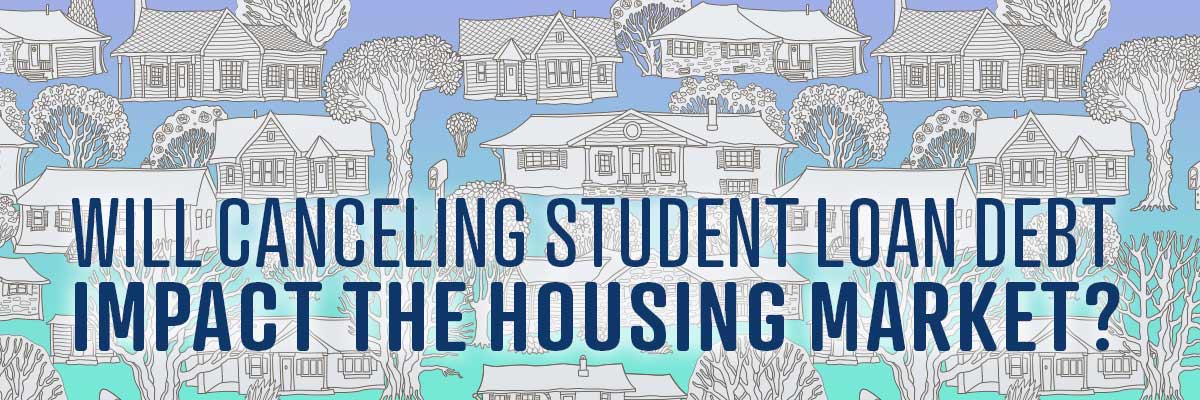Will Canceling Student Loans Affect the Housing Market?
September 15, 2022
Getting a college degree in the United States is a goal many people plan to achieve. College isn’t as financially attainable to some as it is for others and many students must either work, get a loan, or do both to pay for college. The current student loan debt in the United States is about $1.75 trillion. About 45.3 million borrowers have student debt, and the average student borrows over $30,000 to pursue a bachelor’s degree. Even though it is great for students to get financial assistance to obtain a degree, many are starting to realize how student debt indirectly affects them from being able to purchase home years down the road. Will clearing student debt bring a positive impact on the economy and the housing market?
It’s important for individuals to build up a good credit history and if loan payments aren’t made on time, it can negatively impact their credit score. The typical age for a college student is 18-24 and according to Credit Karma, people within this age group have a credit score below average. Having student loan debt can also increase a borrower’s DTI (debt-to-income) ratio, which can affect the rate they’ll qualify for or the possibility to get a mortgage loan. Rising home prices and higher DTI makes getting a home very hard for individuals.
In our recent Home Sales Report, the median home price during July in Virginia was $385,000, so a 20% down payment on the median-priced home would be $77,000, a 10% down payment would be $38,500, and a 5% down payment would be $19,250. This can be difficult for many borrowers to pay because of the student debt on their shoulders and could take a lengthy amount of time to save for a down payment. Our state government realizes that many people struggle to purchase a home and have created certain programs for first-time home buyers in Virginia that can provide money for a down payment or low-down payment options. A report by the National Association of REALTORS® showed that 29% of all student loan borrowers across the U.S. believe student loan debt impacted their ability to purchase a home.
Canceling student debt has been a hot topic for some time now and the Biden Administration has emphasized its plan to tackle this issue. Some economists and policymakers argue that loan forgiveness would boom the economy, generating billions in the nation’s GDP while others believe that relieving debt could stimulate more inflation in the economy.
Home prices continue to grow out of reach for many, forcing some millennials and gen-Zers to stick to renting, or staying with their parents or roommates. In Virginia, the total outstanding student loan debt is $44.2 billion. Virginia students borrow over $37,000 on average to pay for tuition and the average monthly payment is $293. Congress has just announced that they will cancel up to $20,000 of student debt for Pell Grant recipients and up to $10,000 for non-Pell Grants recipients, who have a yearly income of less than $125,000 ($250,000 for married couples). This will provide relief for 43 million borrowers according to the White House. There are so many benefits that come with getting a college degree, but the debt that it comes with hinders many from embracing the American dream of homeownership.
For more information on economic, demographic, and housing market trends in Virginia, be sure to check out Virginia REALTORS®’ other Economic Insights Blogs.


You might also like…
Midway Through 2024, Virginia Home Sales Activity Slightly Outpacing Last Year
By Robin Spensieri - July 24, 2024
According to the June 2024 Virginia Home Sales Report released by Virginia REALTORS®, there were 10,018 homes sold across the commonwealth last month. This is 974 fewer sales… Read More
Three Multifamily Market Trends from the Second Quarter of 2024
By Sejal Naik - July 16, 2024
Each quarter, through its Multifamily Market report, the research team at Virginia REALTORS® analyzes the trends and changes in the multifamily market. Here, we share the key highlights… Read More
Takeaways From the JCHS 2024 State of the Nation’s Housing
By Dominique Fair - July 15, 2024
The Joint Center for Housing Studies from Harvard University released this year’s State of the Nation’s Housing report highlighting the impact today’s market is having on both homeowners… Read More